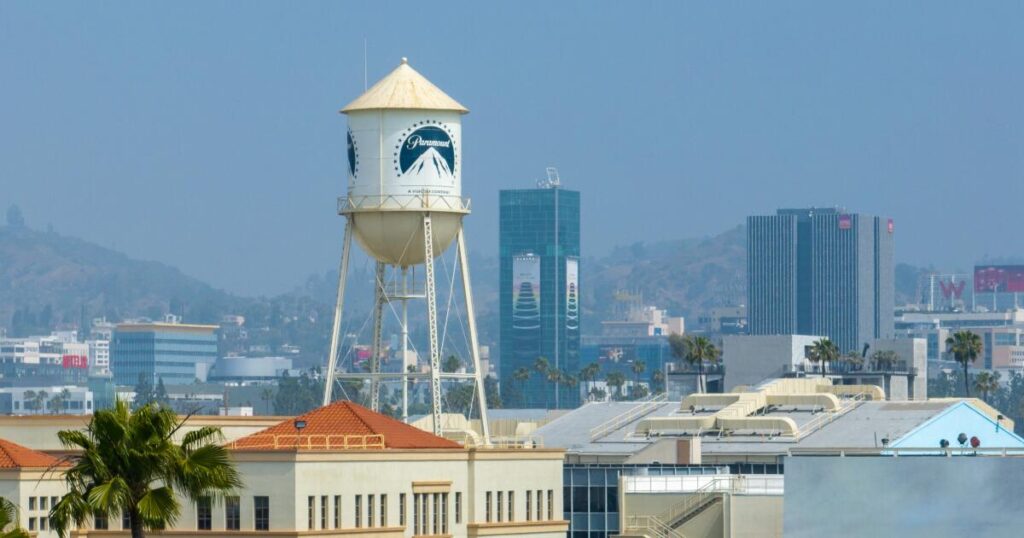
By early spring, Paramount Global found itself in a precarious position. Former President Donald Trump was unwavering in his demand for a substantial financial settlement and a public apology from the company, stemming from a lawsuit over a CBS News “60 Minutes” interview with Kamala Harris. The situation had journalists at CBS in an uproar, and Paramount’s board was under immense pressure. A settlement was deemed essential for securing government approval for Paramount’s $8-billion sale to David Ellison’s Skydance Media.
The situation took a dramatic turn on May 4, when CBS aired a “60 Minutes” segment critical of Trump’s actions against law firms. The segment, anchored by correspondent Scott Pelley, featured an interview with Marc Elias, a former top advisor to Hillary Clinton and a known adversary of Trump. The broadcast further infuriated Trump, who threatened another lawsuit alleging defamation.
Ultimately, this tense backdrop led to Paramount agreeing to a $16-million settlement to resolve the dispute over the Harris interview. Trump had initially sought $20 billion in damages, claiming the interview edits were manipulated to favor Harris’s election chances. The settlement, finalized after months of negotiations among influential figures, included a commitment from Trump to drop any further legal claims related to the May broadcast.
The High-Stakes Negotiations
The settlement talks involved a complex network of stakeholders, including President Trump, media mogul Shari Redstone, tech billionaire Larry Ellison, his son David, and Hollywood agent Ari Emanuel. CBS News’ ousted leader Wendy McMahon and former NBCUniversal chief Jeff Shell, now with RedBird Capital Partners, also played roles in the negotiations.
According to sources, Paramount agreed to cover Trump’s legal fees, with the remainder of the settlement earmarked for his future presidential library. Trump expressed optimism about the deal, stating, “Larry Ellison is a friend of mine. He’s a great guy. I think he’s going to run CBS really well, and I think he’s making a good deal to buy it.”
Despite the settlement, Paramount managed to resist Trump’s earlier demand for a $100-million payout and refused to apologize for CBS’ reporting or edits, citing journalistic integrity and First Amendment rights as their guiding principles.
Expert Opinions and Industry Reactions
C. Kerry Fields, a business law professor at USC Marshall School, commented on the settlement, saying, “This settlement allows Paramount to focus on its prospective sale, and CBS can maintain its principles. But principle has its price, and there certainly was one set here.”
The eight-month legal battle exposed Paramount’s vulnerabilities and internal divisions, especially with its potential new owners. Paramount was under pressure to finalize the settlement before its annual shareholder meeting, where three new board members were set to join.
“This [settlement] was all about survival — it was that dark,” Fields said. “Paramount has to execute the sale to Skydance in order to survive.”
The Road to Resolution
The sale of Paramount to the Ellison family initially seemed secure. Larry Ellison, co-founder of Oracle Corp., is a close associate of Trump and a potential buyer for TikTok, another deal of interest to the former president. The Paramount-Skydance deal, struck a year prior, promised to reshape Hollywood’s landscape.
However, an unexpected twist emerged last fall when “60 Minutes” invited both Trump and Harris for pre-election interviews. Trump initially agreed but later withdrew, leading CBS to proceed with Harris’s interview. The subsequent editing of her responses became a focal point of Trump’s lawsuit, which accused CBS of election interference.
First Amendment experts largely dismissed the lawsuit as meritless, viewing it as a possible campaign tactic. Nevertheless, the legal proceedings continued, with CBS executives refusing to release the full interview transcript despite suggestions from Jeff Shell, who was poised to become Paramount’s president upon Skydance’s acquisition.
Impact and Future Implications
The settlement’s finalization, just hours before Paramount’s board transition, was facilitated by a potential side agreement. Trump’s team anticipates that Paramount networks will eventually air millions of dollars’ worth of free advertisements supporting Trump causes, although Paramount denied any such commitments.
Despite the settlement, the deal has drawn criticism from First Amendment advocates and political figures. Senator Bernie Sanders remarked, “Paramount’s move to settle a bogus lawsuit with President Trump over a ‘60 Minutes’ report he did not like is an extremely dangerous precedent.”
“Paramount’s decision will only embolden Trump to continue attacking, suing, and intimidating the media,” Sanders added.
As Paramount moves forward with its sale to Skydance, the media industry will closely watch how this settlement influences future interactions between media companies and political figures. The resolution of this high-profile case underscores the intricate balance between business interests and journalistic integrity in an era of heightened political scrutiny.






